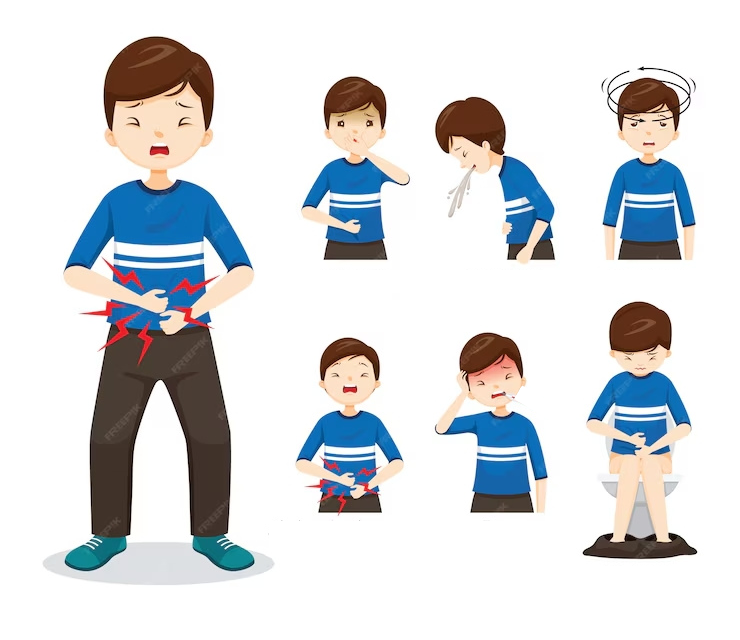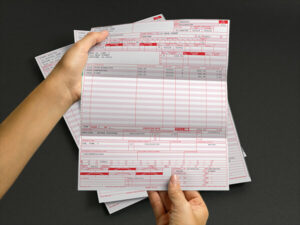Diarrhea is a common condition characterized by loose and watery stools during bowel motions that are more often than normal. Diarrhea is often a temporary discomfort, but if not treated appropriately and on time, it can lead to major health problems. And when we talk about the field of medical billing and coding then there are some specific ICD-10 codes for diarrhea. Accurate coding requires knowledge of all diarrhea ICD-10 codes for medical billers. So let’s talk about all of the ICD-10 codes for diarrhea and see how this system operates and why these codes are crucial for medical professionals.
What is Diarrhea?
Most individuals are familiar with diarrhea since they have all had it at some time in their lives. Diarrhea occurs when the bowel moves unusually and is characterized by frequent, loose, and watery stool. Diarrhea can be caused by different factors including infections, dietary choices, and underlying medical disorders. Most people treat this condition on their own but remember that if you do not treat this disease then it can lead to dehydration and other complications. So, when it gets more severe then it is important to properly diagnose and treat it.
Common Causes of Diarrhea
- Parasitic, bacterial, or viral infections can cause acute diarrhea.
- Food allergies like gluten allergies and celiac disease
- A reaction to medications like antibiotics can disturb the balance of intestinal flora and produce diarrhea.
- Irritable bowel syndrome (IBS) and inflammatory bowel disease (IBD) can cause persistent diarrhea.
Symptoms of Diarrhea
The symptoms of diarrhea can be different but common signs include:
- The most common symptom of diarrhea is loose bowel motions. This issue can cause dehydration in more severe cases.
- Many people who have diarrhea get stomach cramps or pain.
- Dehydration is a serious consequence of diarrhea that causes symptoms such as dizziness, dry mouth, and dark urine.

What is ICD-10?
When a patient visits the doctor and diagnoses the disease, the billing process starts in which each service that patient gets is documented. And to categorize each disease different ICD-10 codes are utilized. The ICD (International Classification of Diseases) is a medical coding system designed by WHO to classify the symptoms and their causes and ensures consistency in diagnosing and coding various medical conditions. Currently, they have the 10th Edition, and very soon the 11th edition is expected. They have defined a standardized way of documenting patient diagnoses and conditions. This way all the medical records ensure clarity and consistency.
The Importance of Accurate Coding
Accurate coding is an important part of the healthcare sector because it allows healthcare providers to get timely payment for their services. Additionally, it helps in monitoring the frequency of different illnesses and diseases, which is beneficial for the study of public health. By accurately recording a patient’s medical information, accurate coding enhances patient care. ICD-10 data is also used by several health organizations and governments for resource allocation and healthcare planning. ICD-10 code for diarrhea is one of these codes that medical billing companies need to document diarrhea conditions.
ICD-10 Code for Diarrhea
ICD-10 specifically codes diarrhea as K52.9. This number is used in claims or medical records to indicate the presence of diarrhea. It is used to treat any type of non-infectious diarrhea brought on by food intolerances, diseases like IBS, or other non-infectious causes
Subtypes of diarrhea
Acute diarrhea (K52.0): Usually short-term and caused by illnesses or dietary mistakes.
Chronic Diarrhea (K52.2): Prolonged diarrhea, which frequently indicates an underlying medical issue.
Chronic Diarrhea in Children (K52.81): Eosinophilic gastritis or gastroenteritis, not otherwise classified.
Traveler’s Diarrhea (K52.1): Diarrhea contracted when traveling, generally owing to exposure to new pathogens.
Inflammatory Diarrhea (K52.3): Diarrhea with symptoms of inflammation in the digestive tract, which might indicate Crohn’s disease or ulcerative colitis.
Specific ICD-10 Codes for Infectious Diarrhea
A00 - Cholera
- A00.0 – Cholera that happens due to Vibrio cholerae 01 and biovar cholera
- A00.1 – Cholera that happens due to Vibrio cholerae 01 and biovar eltor
- A00.9 – Cholera, unspecified
A01 - Typhoid and Paratyphoid Fevers
- A01.0 – Typhoid Fever
- A01.1 – Paratyphoid Fever A
- A01.2 – Paratyphoid Fever B
- A01.3 – Paratyphoid Fever C
- A01.4 – Paratyphoid Fever, Unspecified
A02 - Other Salmonella Infections
- A02.0 – Salmonella enteritis
- A02.1 – Salmonella sepsis
- A02.2 – Localized salmonella infections
- A02.8 – Other specified salmonella infections
- A02.9 – Salmonella infection, unspecified
A03 - Shigellosis
- A03.0 – Shigellosis due to Shigella dysenteriae
- A03.1 – Shigellosis due to Shigella flexneri
- A03.2 – Shigellosis due to Shigella boydii
- A03.3 – Shigellosis due to Shigella sonnei
- A03.8 – Other Shigellosis
- A03.9 – Shigellosis, unspecified
A04 - Other Bacterial Intestinal Infections
- A04.0 – Enteropathogenic Escherichia coli infection
- A04.1 – Enterotoxigenic Escherichia coli infection
- A04.2 – Enteroinvasive Escherichia coli infection
- A04.3 – Enterohemorrhagic Escherichia coli infection
- A04.4 – Other intestinal Escherichia coli infections
- A04.5 – Campylobacter enteritis
- A04.6 – Enteritis due to Yersinia enterocolitica
- A04.7 – Enterocolitis due to Clostridium difficile
- A04.8 – Other specified bacterial intestinal infections
- A04.9 – Bacterial intestinal infection, unspecified
A05 - Bacterial Foodborne Intoxications Not Elsewhere Classified
- A05.0 – Foodborne Staphylococcal intoxication
- A05.1 – Botulism
- A05.2 – Foodborne Clostridium perfringens intoxication
- A05.3 – Foodborne Vibrio parahaemolyticus intoxication
- A05.4 – Foodborne Bacillus cereus intoxication
- A05.8 – Other specified bacterial foodborne intoxications
- A05.9 – Bacterial foodborne intoxication, unspecified
Specific ICD-10 Codes for Non-Infectious Diarrhea
K52 - Colitis and Unspecified Noninfective Gastroenteritis and Other
- K52.0 – Gastroenteritis and colitis due to radiation
- K52.1 – Toxic gastroenteritis and colitis
- K52.2 – Allergic and dietetic gastroenteritis and colitis
- K52.8 – Other specified noninfective gastroenteritis and colitis
- K52.9 – Noninfective gastroenteritis and colitis, unspecified
K59 - Other Functional Intestinal Disorders
- K59.0 – Constipation
- K59.1 – Functional diarrhea
- K59.2 – Neurogenic bowel, not elsewhere classified
- K59.3 – Megacolon, not elsewhere classified
- K59.4 – Other specified functional intestinal disorders
- K59.8 – Other specified functional intestinal disorders
- K59.9 – Functional intestinal disorder, unspecified
ICD-10 Codes for Diarrhea in Specific Conditions
R19 - Signs Involving the Digestive System and Abdomen and Other Symptoms
R19.7 – Diarrhea, unspecified
E86 - Volume Depletion
- E86.0 – Dehydration
- E86.1 – Hypovolemia
- E86.9 – Volume depletion, unspecified
Why Choose M&M Claims Care?
M&M Claims Care is an experienced medical billing company in the USA. If you want accurate billing and documentation services, you need our expert team of medical billers. We help you make each process accurate and compliant so you can give more time to your patients. Your practice deserves nothing but a reliable medical billing partner.







